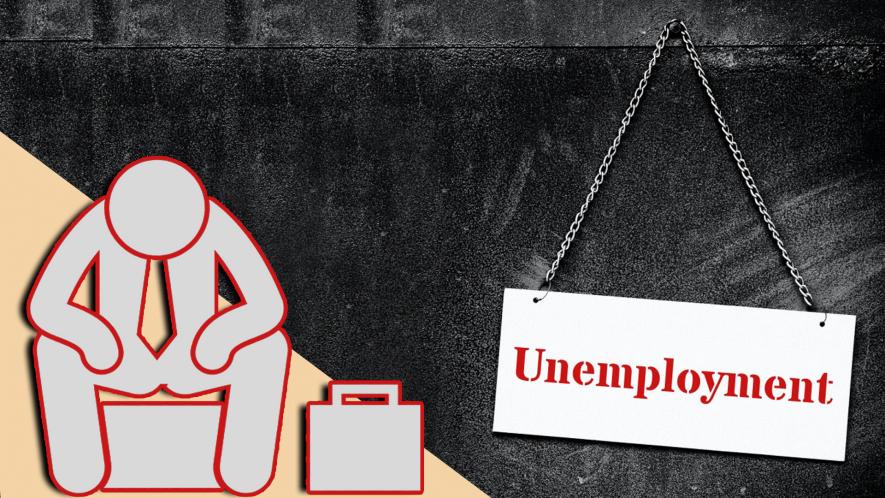
Solving the problem of unemployment in Pakistan requires a multi-faceted approach that addresses the root causes and provides sustainable solutions
Waqar Abbasi
In today’s rapidly changing world, the transition from university to the professional sphere has become increasingly challenging for fresh graduates in Pakistan. In the past, obtaining a university degree often guaranteed a smooth entry into the job market. However, times have changed, and we now face economic difficulties that have made unemployment a pervasive struggle. In this article, we embark on a thought-provoking exploration of the graduate experience, delving into the social factors that contribute to their difficulties in finding meaningful employment. We also examine the obstacles they encounter along their journey.
In a nation like Pakistan, where 22.8 million children are not enrolled in school, the attainment of a university degree is considered a blessing. However, the situation quickly takes a turn for the worse. As I completed my degree in January, I found myself caught up in the lengthy process of acquiring transcripts and submitting my thesis, which extended well into April. During this period, a recurring question from those around me emerged: “What will you do now?” This constant inquiry not only demoralizes us but also takes a toll on our mental well-being.
This experience reminded me of Victor Turner’s theory, which we studied in the realm of religious anthropology. Turner, an anthropologist who adopted van Gennep’s paradigm, placed special emphasis on liminal rites. These rites imply that individuals undergoing them exist in a state of “betwixt and between” or limbo, where their identity is temporarily suspended after separating from society but before being reintegrated into it. This concept particularly resonates with recent graduates, as society expects them to succeed swiftly, despite being neither students nor employed.
 In a country like Pakistan, where the majority of the population is young, unemployment not only has a negative impact on the economy, but it also creates a generation that will go nowhere
In a country like Pakistan, where the majority of the population is young, unemployment not only has a negative impact on the economy, but it also creates a generation that will go nowhere
I have sent out my resume over a hundred times in the past two months, yet I have received no response. I now find myself in a perplexing situation where I must utilize the skills I developed during my four-year struggle to earn a degree. Unemployment has become a widespread issue throughout the country. According to a recent report from the Pakistan Bureau of Statistics, Pakistan’s unemployment rate rose to 6.50 percent in 2021, up from 4.40 percent in 2020.
If you are an unemployed graduate, it is highly likely that someone will advise you to start your own business. This suggestion can be incredibly bewildering, especially if you do not have a background in business studies. When faced with such a recommendation, I couldn’t help but wonder, “Why would I waste four years of my life studying if I have to pursue business without any financial resources?”
The complexity deepens when we consider why universities offer degrees for which there is no demand in the job market. In most developed countries, individuals who are unemployed receive some form of unemployment benefits. For instance, in Finland, unemployed individuals receive a monthly stipend of 800 euros from the government. However, the Finnish system has checks in place to ensure that only those in need can benefit from it. There is a maximum limit of 400 days for unemployment benefits, and recipients must actively search for jobs, providing monthly updates to the government regarding their job applications and rejections. Furthermore, the benefits are only granted to individuals who meet the minimum educational qualifications. Those who fall short in terms of education are directed towards vocational training, which is provided free of charge.
To comprehend the reasons behind the challenges we currently face, let us follow Ali’s educational journey as a case study. Ali grew up in a single-parent household with three siblings. His father, a daily wage worker, enrolled them in a government school because he couldn’t afford the cost of private education. However, he struggled to meet their basic needs such as stationery, books, uniforms, transportation, and extracurricular activities.
When his father’s financial situation worsened, despite working night shifts, he could no longer provide an equal life for all his children. As a result, he decided to withdraw his two older sons from school, and they began working to support their younger siblings’ education. Ali and his sister continued their education amidst numerous challenges.
 During this time, Ali’s sister reached the stage of applying for university admissions. However, due to cultural norms that favor males, their family decided to arrange her marriage, thus ending her educational journey. Ali, on the other hand, persisted in his studies as his father had always aspired for him to become a doctor. He dedicated himself to passing the medical entrance examination through self-study. However, his efforts were in vain, not because he lacked the ability to work hard for the board examinations, but because his father couldn’t afford to pay bribes to personnel at the Board of Intermediate and Secondary Education for an A1 grade. Consequently, he was rejected from medical college, which inflicted not only mental strain from his family’s expectations but also societal and peer pressure. Exhausted by it all, he yearned to break free from these circumstances.
During this time, Ali’s sister reached the stage of applying for university admissions. However, due to cultural norms that favor males, their family decided to arrange her marriage, thus ending her educational journey. Ali, on the other hand, persisted in his studies as his father had always aspired for him to become a doctor. He dedicated himself to passing the medical entrance examination through self-study. However, his efforts were in vain, not because he lacked the ability to work hard for the board examinations, but because his father couldn’t afford to pay bribes to personnel at the Board of Intermediate and Secondary Education for an A1 grade. Consequently, he was rejected from medical college, which inflicted not only mental strain from his family’s expectations but also societal and peer pressure. Exhausted by it all, he yearned to break free from these circumstances.
At this point, Ali’s only option was to secure admission to a public university and liberate himself from the suffocating society he found himself in. He applied to a university located 500 miles away from his hometown and was accepted into a degree program he had never heard of. He diligently pursued his studies while managing his finances by working part-time during difficult periods. Despite facing numerous challenges and hardships, he eventually graduated. However, things took a turn for the worse as time passed. His father grew older, and his siblings settled down and moved away. Now, he finds himself living alone with his parents, actively searching for work to support his family.
Similar stories can be found all around us. Every second young person in Pakistan is either like Ali or faces similar circumstances. Ali’s story is not unique; it represents the struggles encountered by countless young individuals in Pakistan and beyond. It sheds light on a system plagued by corruption, inequality, and societal barriers that hinder the full potential of its youth. Ali’s journey teaches us the importance of resilience, the power of education, and the need for systemic change.
As we reflect on Ali’s story, we are reminded that behind every statistic lies a human being with dreams, aspirations, and an unyielding spirit. It is crucial that we address the underlying issues that perpetuate these struggles, such as corruption, gender inequality, and socioeconomic disparities. Only through collective efforts can we create a society where every Ali, every young person, has an equal opportunity to thrive and contribute to the betterment of their community.
Ali’s journey may have been arduous, but his resilience and determination have made him a symbol of hope. He serves as a testament to the power of education, the strength of the human spirit, and the transformative impact that one individual can have on their own life and the lives of those around them. Ali’s story continues as he stands on the precipice of a future full of possibilities, ready to shape his destiny and inspire others to overcome their own obstacles.
In a country like Pakistan, where the majority of the population is young, unemployment not only has a negative impact on the economy, but it also creates a generation that will go nowhere!
Solving the problem of unemployment in Pakistan requires a multi-faceted approach that addresses the root causes and provides sustainable solutions. By focusing on vocational training, entrepreneurship, public-private partnerships, education reforms, anti-corruption measures, foreign direct investment, and social safety nets, we can create an ecosystem that empowers the youth, generates employment, and paves the way for a prosperous future for all. Together, we can unlock the potential of Pakistan’s young generation and build a thriving economy.
___________________
Waqar Abbasi is a researcher and anthropologist based in Larkana, Sindh, Pakistan. He holds a Master’s degree in Anthropology from the University of Sindh Jamshoro. Currently, he is engaged in an ethnographic research study focusing on “Schooling in the time of Disaster,” specifically analyzing the impact of the devastating super flood of 2022.